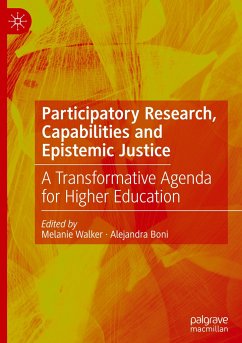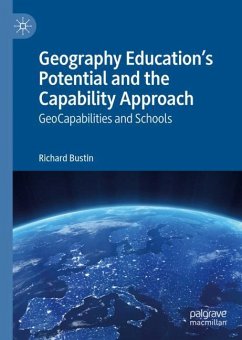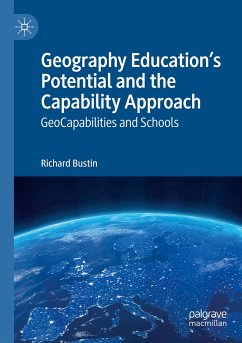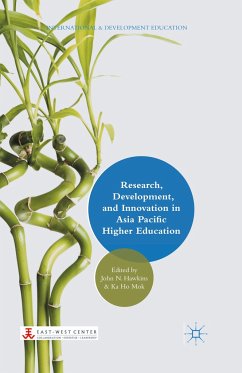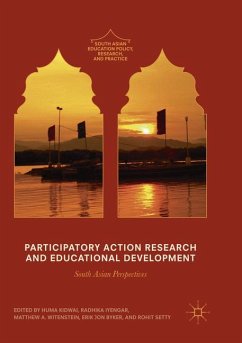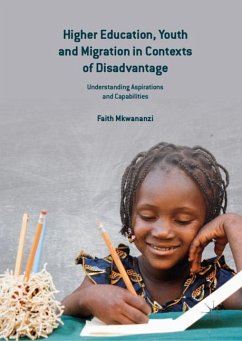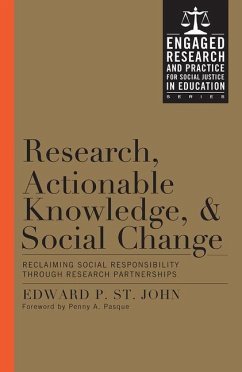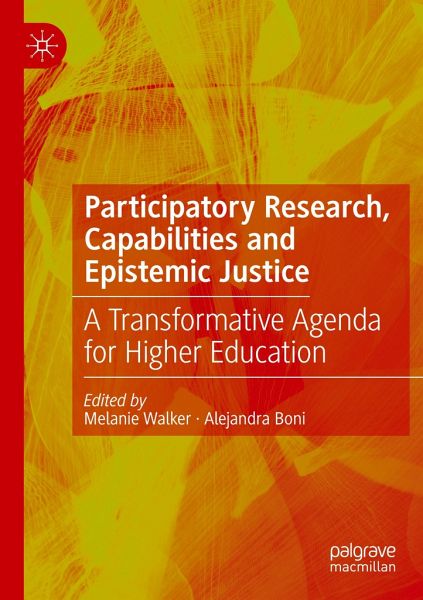
Participatory Research, Capabilities and Epistemic Justice
A Transformative Agenda for Higher Education
Herausgegeben: Walker, Melanie; Boni, Alejandra
Versandkostenfrei!
Versandfertig in 6-10 Tagen
106,99 €
inkl. MwSt.

PAYBACK Punkte
53 °P sammeln!
This book explores the potential of participatory research and the capability approach to transform understandings of higher education. The editors and contributors illuminate the importance of epistemic in/justice as a foundation to a reflexive, inclusive and decolonial approach to knowledge, as well as its importance to democratic life and participation in higher education. Drawing together eight global case studies, the authors argue for an ecology of knowledge that expands epistemic capabilities in higher education through teaching, research and policy making. Moreover, the chapters illust...
This book explores the potential of participatory research and the capability approach to transform understandings of higher education. The editors and contributors illuminate the importance of epistemic in/justice as a foundation to a reflexive, inclusive and decolonial approach to knowledge, as well as its importance to democratic life and participation in higher education. Drawing together eight global case studies, the authors argue for an ecology of knowledge that expands epistemic capabilities in higher education through teaching, research and policy making. Moreover, the chapters illustrate how these epistemic capabilities can be marginalised by both institutions and structural and historical factors; as well as the potential for possibilities when spaces are opened for genuine participation and designed for a plurality of voices. This book will appeal to scholars of social justice and participatory research as well as ongoing debates around decolonising the academy.





